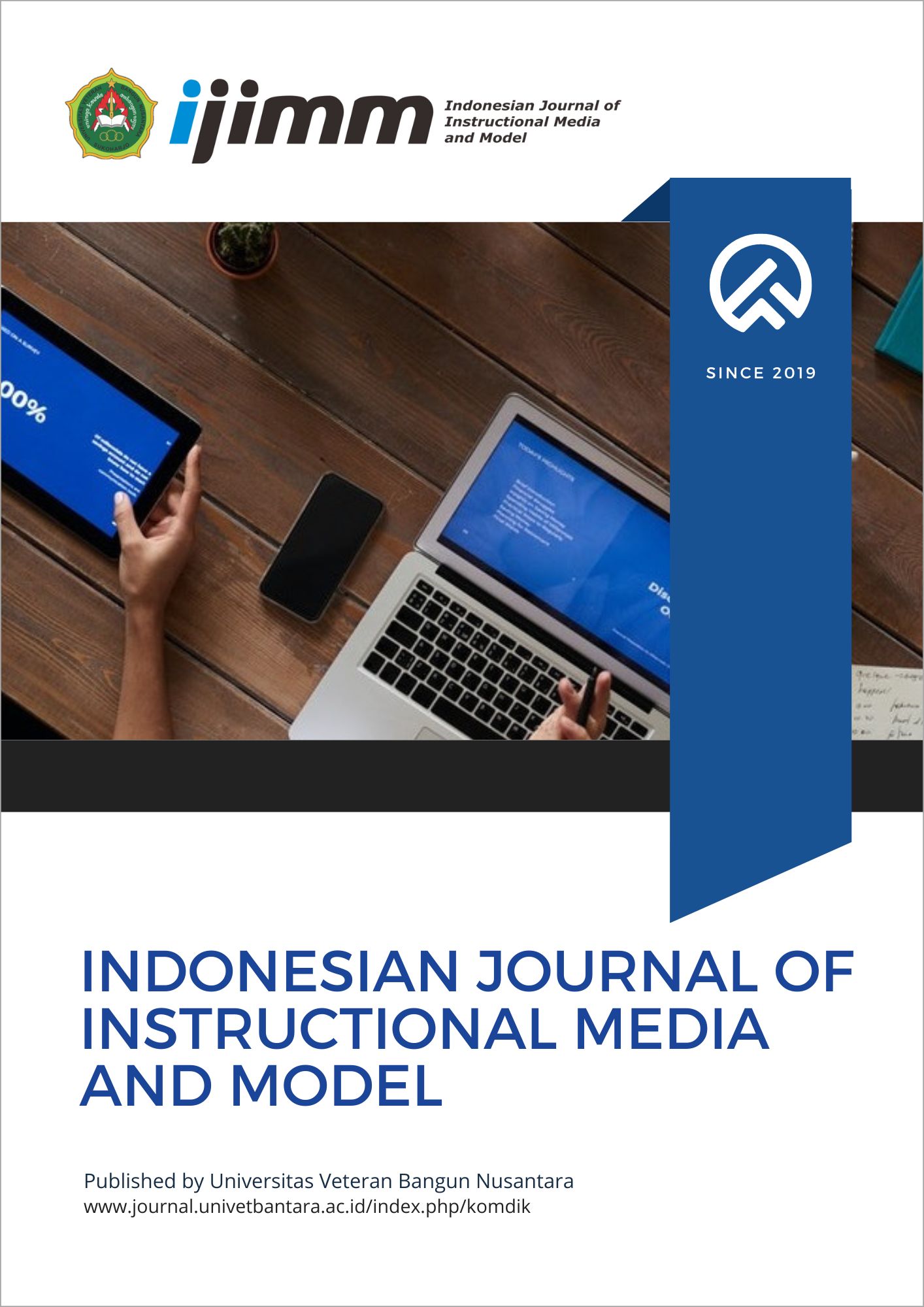Opportunities and Challenges for the Implementation of Online and Offline Learning in Social Studies Teaching Material Development Courses
DOI:
https://doi.org/10.32585/ijimm.v6i1.5255Abstract
After Covid-19 pandemic, online learning has become so important and urgent, while offline learning has become very much needed because of its role in shaping the character of students. This article aims to discuss opportunities and challenges in the implementation of online and offline learning in the Social Studies Teaching Material Development course. This research is qualitative research with a case study approach. Data collection techniques use data triangulation, namely data from interviews, observations and reflection sheets. The results show that online learning offers flexibility of time and place, accessibility to various digital learning resources, and the ability to document course materials more easily. However, the challenges faced include limited technology infrastructure, internet connectivity problems, and lack of face-to-face interaction that can reduce the quality of discussion and understanding of the material. On the other hand, offline learning provides more effective in-person interaction to build social and communication skills, as well as providing opportunities for hands-on practice. The main challenge in offline learning is the limited time and space, energy and costs incurred due to the distance between the learning space and the residence of students. The study concluded that a combination of these two methods, known as blended learning, can be an optimal solution to overcome the shortcomings of each method. The application of a blended learning model can increase the effectiveness and efficiency of learning in the Social Studies Teaching Material Development course by utilizing the advantages of both approaches. Therefore the result of this research are valuable insights for lecturers, students, and higher education managers in developing learning strategies that are adaptive and responsive to the challenges of the times.
Downloads
Downloads
Published
How to Cite
Issue
Section
License
Copyright (c) 2024 Ratna Purwanty, Eva Nirtha, Andreas Au Hurit, My Ismail

This work is licensed under a Creative Commons Attribution-ShareAlike 4.0 International License.
Authors who publish with the Indonesian Journal of Instructional Media and Model agree to the following terms:
- Authors retain copyright and grant the journal the right of first publication with the work simultaneously licensed under a Creative Commons Attribution License (CC BY-SA 4.0) that allows others to share the work with an acknowledgment of the work's authorship and initial publication in this journal.
- Authors are able to enter into separate, additional contractual arrangements for the non-exclusive distribution of the journal's published version of the work (e.g., post it to an institutional repository or publish it in a book), with an acknowledgment of its initial publication in this journal.
- Authors are permitted and encouraged to post their work online (e.g., in institutional repositories or on their website) prior to and during the submission process, as it can lead to productive exchanges, as well as earlier and greater citation of published work.





